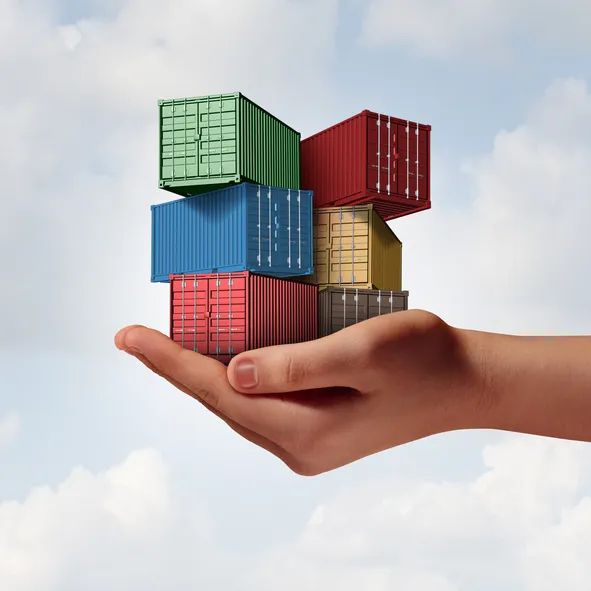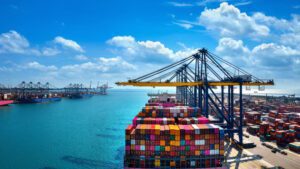The international cargo and shipping insurance are contract agreements (policies) to ensure that, in case any damage occurs to the cargo shipped, the owner or the shipper can have a refund in order to receive payments requested. The international cargo insurance is split into two categories: the shipment contracted by the cargo seller or buyer and the civil liability contracted by the shipper.
The shipment category is divided into national and international transportation related to the Foreign Trade (import and export). The civil liability has a number of types of insurance. They make sure that the shipper will be refunded to the payments the companies are forced to pay and they are able to reduce the damage caused in the shipping. In both cases, the insurance will cover losses and goods in different types of transportation: maritime, land or air shipping – and that also includes multimodal means of transportation. The international cargo insurance is valid throughout the period the goods are being shipped and it is possible to extend the period of time while the goods are inside the warehouses.
Insurance for Civil Liability in Cargo Transportation
It is a mandatory insurance policy contracted by the shipper to cover all types of transportation modals. This type of insurance ensures the payment of damages caused to third parties in case the cargo owner is affected. The policy covers accidents where the driver or the captain, shipping the goods, has caused the accident. The main difference between the shipping insurance and the civil liability is that the latter has very restricted coverage. Its objective is to indemnify damages and/or losses caused to the cargo due to an accident with the shipper.

This type of policy does not cover either theft or robbery of goods. It does not cover damages caused by inappropriate packings or goods that are poorly stored. Natural accidents are not covered either.
Insurance for Transportation
The international transportation comprehends different types of foreign Trade operations in both exporting and importing. The insurance agreement, on such occasions, must comply with the risk of the trip, the sales conditions established and/or the purchase agreed on this deal. The cargo owners usually contract a multimodal or intermodal type of insurance in order to cover risks that can not be predicted. Such risks might occur in all means of transportation that shall be used for cargo transportation from the origin to the destination.
Besides the payment of eventual losses, this cargo insurance covers taxes, freight, expected profits and diverse expenditures. The parties directly involved in the cargo insurance are:
– The Insured: the cargo owner, importer or exporter.
– The Insurer: the party who agrees to indemnify another upon the happening of specified contingency.
– Insurance Broker: the company that settles the agreement between the Insurer and the Insured in when the policy is contracted.
The international shipping insurance follows the same contract structure for importing and exporting. The agreement is based on Incoterms (International Trade Terms) that establish, inside a contract structure for buying and selling, the international rights and duties (based on reciprocity) for importers and exporters.
This instrument establishes paradigms such as the place where the exporter should deliver the goods, who is responsible for paying the freight and who is responsible for contracting the insurance. The responsibility for the insurance shall be defined according to the type of the contract signed for buying and selling.
1) Why should we have an insurance?
The international cargo insurance promotes tranquility to the shipping operation. Theft, collision and damage are frequent events amid insane chains of distribution of products in Foreign Trade. There is also a risk of accidents taking place in means of transportation that might either damage or even destroy the cargo. This way, the Cargo Insurance becomes extremely important. According to Brazilian Rules, Cargo Insurance is mandatory for all the goods being shipped inside the country.
2) What parameters are more impacting to define price?
The variety of daily goods shipped is huge. The price of cargo shipping insurance depends on a few crucial factors such as the type of goods, the packing, whether the goods are perishable or not, the destination of the delivery, the extension of insurance and types of coverage, frequency of claims and the values to be indemnified.
3) How long does it take for the insurance pay a claim?
The insurance claim is normally paid within 30 days after all the documents are sent to the insurance company. In case additional documents are required, this time limit shall be restarted as of the first business day as soon as all the requirements are met.

4) What does an insurance generally cover?
There are different types of coverage that might be contracted. SUSEP (Brazilian Superintendency of Private Insurance), responsible for the authorization, control and supervision of insurance market, complementary pension plan open and Life Insurance, capitalization and reinsurance in Brazil has different classifications of coverage. According to the categories, the coverage might include the following items:
No. 1 – Restrict Basic Coverage (C)
Such type covers damages and losses caused to the insured goods due to accidents with the means of transport:
–Fire, Lightning bolt or Explosion
–Grounding and Shipwreck of the vessel
– Capsizing, collision, tipping and vehicle derailment.
– Collision or contact of vessel craft or conveyance with any external object other than water
–Collision, fall or forced aircraft landing with documented proof.
–Cargo discharge in Ports of Distress.
– Jettison
–Total Loss of any volume during loading and unloading of cargo in a vessel:
–Total loss due to accidents occurred at sea.
–This type of insurance does not cover denting or scratching.
No. 2 – Restricted Basic Coverage (B)
: This coverage guarantees the insured party the damages and losses caused to the objects covered by the risks mentioned in the previous coverage:
–Total or Partial loss due to the ocean conditions and unexpected maritime events:
- Floods, accidents caused by dams, lakes, lagoons that take place in road transportations
–Landslides, accidents with rocks caused to works of art and/or any other objects during the land transportation.
- Earthquake or Volcanic eruptions
–Entry of sea, lake or river water into vessel craft hold, conveyance, container, van or Not covered place of storage
No. 3 – Broad Basic Coverage (A)
This type guarantees that the losses with all the risks of damage and loss caused to the object covered as described in the policy or any endorsement due to external causes, except those included in the clauses “not covered damages”.
Besides these mentioned points, there are additional coverages as follows:
–Additional coverage of freight and/or Insurance
–Additional coverage of expenses
–Additional coverage of taxes (imported goods)
–Additional coverage of taxes (exported goods)
–Additional coverage of expected profits
–Additional coverage of goods to be returned or dispatched one more time
–coverage for Air Boarding with no declared sum
–Additional coverage for shipping transport with vessels to be specified in national transports.
– Additional coverage for classification of vessels in national transports
–Additional Coverage for transshipment and change of route.
–Additional coverage for risks of strikes
–Additional Coverage for risks of war to water and air shipping
–Additional coverage to extend the length of risks
–Additional coverage for extended coverage and opening of volume
–Additional coverage for internal benefits
–Additional coverage for destruction
–Additional coverage for goods transported in vehicles that belong to the insured party
–Additional coverage for Theft (limited to restricted basic coverage) B)
–Additional coverage for misplaced goods (limited to restricted basic coverage) B)
– Additional coverage for risks of breaking goods (limited to broad basic coverage) A)
5) Who hires the insurance?
The insurance to protect transports and the civil liability are different with distinguished contracts. The liability to contract insurance for transports is directly associated with the type of business deal and also with the contract for buying and selling that was signed. That is, this contract shall establish the party responsible for the liability to contract the insurance and when this liability is supposed to start.
According to the Decree No. 61.867, established on December 07, 1967, that rules the mandatory insurance in the country defines that the cargo owner as well as the shipper shall contract insurance for the operation of the transport based on the premise that both parties have specific insurance. The insurance that the cargo owner has is meant to protect goods and the physical integrity of the equity to be transported.
As for the operations of transport, the insurance for liability guarantees the cargo since the boarding until the discharge. That is the moment where the goods are dispatched to the vehicle in their final destination.
6) What are the types of insurance for the shipper’s civil liability ?
RCTR-C
The Cargo insurance for Civil Liability to road transportation (RCTR-C in Brazil) guarantees to the Road Carrier that the Indemnity, that was paid to cover the damages caused to the goods transported, shall be refunded. This type covers Road accidents such as collisions, overturning, tipping, fire or explosions. It is defined in the policy that all the Brazilian territory is part of the insurance as long as the requested documents are presented as well as the Bill of Lading and Boarding Notifications.
RCF-DC
The International Cargo and Transporter Civil Liability (RCF-DC) covers the transported cargo under risks of theft. Such insurance is useful when there is serious threat of theft, violence and/or robbery as well as product misplacement when the vehicle is robbed by criminals.
RCT-VI
The Insurance for Civil Responsibility to cover Road Transportation in International Shipping (RCT-VI) is contracted by the Carrier in International Shipping. This insurance protects the contractor as for the liability in terms of the cargo to be shipped.
RR
The Road Risks (RR) is the insurance to protect the property during the shipping. It is contracted by the carrier of goods shipped in their own vehicles and/or being driven by a third party inside the Brazilian territory – via land, water or air. This insurance covers incidents such as collisions, thefts, robbery, fire and explosion caused to the vehicle.
RCTA-C
This insurance is meant to be contracted by companies that hold authorization granted by the Civil Department of Aviation to operate in this air shipping. It covers damage caused to the goods that belong to third parties being shipped as long as such damage or losses have been caused by the insured carrier.
7) Does this insurance cover the damage caused to the container?
International Cargo Insurance covers the imported goods as well as additional costs included in this process such as freight, expenditures, taxes and expected profits. However, it does not cover the container based on the fact that this equipment is neither a product nor a type of packing. During the international shipping, any losses or damage caused to the container shall be solely liable to the owner. After being unloaded, the container is transported to a Customs Terminal. This terminal shall be declared the official warehouse and as such is liable to eventual damage caused to the containers and the goods. In order to protect goods belonging to third parties as well as the container, the terminal shall contract the insurance to cover Civil Liability with specific coverage.



